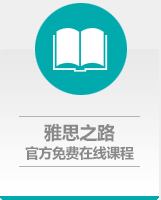|
Every year, millions of candidates take the IELTS to get one step closer to their dreams of immigration or overseas education. Candidates are well aware that poor performance in this test can significantly affect their immigration and university admission chances and as a result, they try to seek every possible advantage or solution to increase their chances of getting a higher IELTS band score. This has created a lucrative market for IELTS tutors and IELTS preparation courses (Memon & Umrani, 2016; Wilson, 2010; Yizhen ,2017).
IELTS preparation courses have been the focus of many washback and impact studies over recent years. Most of these studies investigate aspects such as the effectiveness of preparation courses and teacher and learner expectations and teaching practices. Each of these aspects are very important as they can have a major effect on the language learning experience of candidates. However, another area that I argue, could indirectly affect language learners but has received virtually no attention is the marketing practices and strategies that preparation schools, and on a smaller scale IELTS tutors, employ to enroll students in their preparation courses.
The fact that this has not been discussed in language learning or testing journals until now is not a surprise. After all, it is an area that is mostly relevant to marketing and business. However, I believe that in many cases, the marketing practices and strategies of IELTS preparation schools affect learners’ expectations and change their perception of what is required to score high in the IELTS.
One of such marketing strategies is the guaranteeing of high band scores. A good test preparation program might play an important role but it cannot in any way be a determining factor in a person’s success in IELTS or language learning and there is not any published study to support such a claim. In fact, there are even some studies that argue that IELTS test preparation courses offer no clear advantage over other types of courses (Green, 2007).
Some IELTS preparation schools also emphasize in their marketing that they teach candidates strategies that can help them boost their band score in a short time. The effectiveness of the use of strategies has been supported by some studies (Zare, 2013; Soleimani et al., 2014; Xu, 2016; Bozorgian, 2012). The issue is that, as it is common in marketing, some preparation schools and tutors make exaggerated claims about the effectiveness of such strategies. This could give candidates the impression that the test can be gamed and that doing well in the test relies just as much or even more on the understanding and application of these strategies than the improvement of their English proficiency. The fact is that, an IELTS band score of 6 or 7 requires English language proficiency that is at that level and the speed and the degree with which an individual can achieve such a level of proficiency depends on many variables (Spolsky, 1989; Ellis, 1994).
It can be argued that in both of the above-mentioned cases, language schools are misleading the language learner’s by making claims that simply cannot be adequately substantiated and are not informed by second language learning theory. According to the principles of responsible marketing outlined by Baker (2009), such type of marketing crosses an ethical line.
As mentioned earlier, candidates are preparing for the IELTS to realize their ambitions of immigration and overseas education. To that end, they have to devote a lot of their time and have to naturally make many other sacrifices. Some reduce their working hours or even quit their jobs to prepare for the exam and have to dip into their savings for their living expenses. Some fall behind academically because they have to spend a year improving their English and studying for IELTS while their peers have already started their graduate or post-graduate education in local universities. The stakes are high and to maximize their chances, candidate will, at some point, consult IELTS preparation schools and tutors. When that happens, they should be given sound guidance and not be misled and misinformed by questionable marketing. Trusting such marketing could set them back and for individuals who have sacrificed and invested so much mentally and financially, the consequences of such setbacks can be severe.
References
Baker, M. (2009). Marketing Responsibly Addressing the ethical challenges. Institute of Business Ethics (IBE).
Bozorgian, H. (2012). Metacognitive instruction does improve listening comprehension. International Scholarly Research Network, 2012, 1-6.
Ellis, R. (1994) The study of second language acquisition. Oxford, Oxford University Press.
Green, A. (2006). Washback to the learner: Learner and teacher perspectives on IELTS preparation course expectations and outcomes. Assessing Writing, 11(2), 113-134.
Hyatt, D. (2012). Stakeholders’ perceptions of IELTS as an entry requirement for higher education in the UK. Journal of Further and Higher Education, 37, 1-20.
Memon, N. & Umrani, S. (2016). The impact of IELTS on the test preparation industry of pakistan. International Journal of Humanities and Social Science, 6(4), 138-146.
Soleimani, H., Zandiye, Kh. & Esmaeilli, S. (2014). The effect of instructed reading strategy on reading performance of Iranian IELTS test takers. International Journal of Language Learning and Applied Linguistics World (IJLLALW), 5(3), 248-257.
Spolsky, B. (1989) Conditions for second language learning: introduction to a general theory (Oxford, Oxford University Press).
Wilson, J. (2010). Recent IELTS materials. ELT journal, 64(2), 219-232.
Xu, J. (2016). The relationship between the use of speaking strategies and performance on IELTS speaking test: a study on Chinese college students. International Journal for 21st Century Education, 3(2), 69-96.
Yizhen, S. (2017). Professional beliefs of eight IELTS preparation course teachers in China (Master's thesis). Retrieved from http://hub.hku.hk/handle/10722/252028 .
Zare, P. (2013). Exploring reading strategy use and reading comprehension success among EFL Learners. World Applied Sciences Journal, 22(11), 1566-1571.
Zhengdong, G. (2009). IELTS preparation course and student IELTS performance: a case study in Hong Kong. RELC Journal, 40, 23-41.
by Amir Vahidian
|













